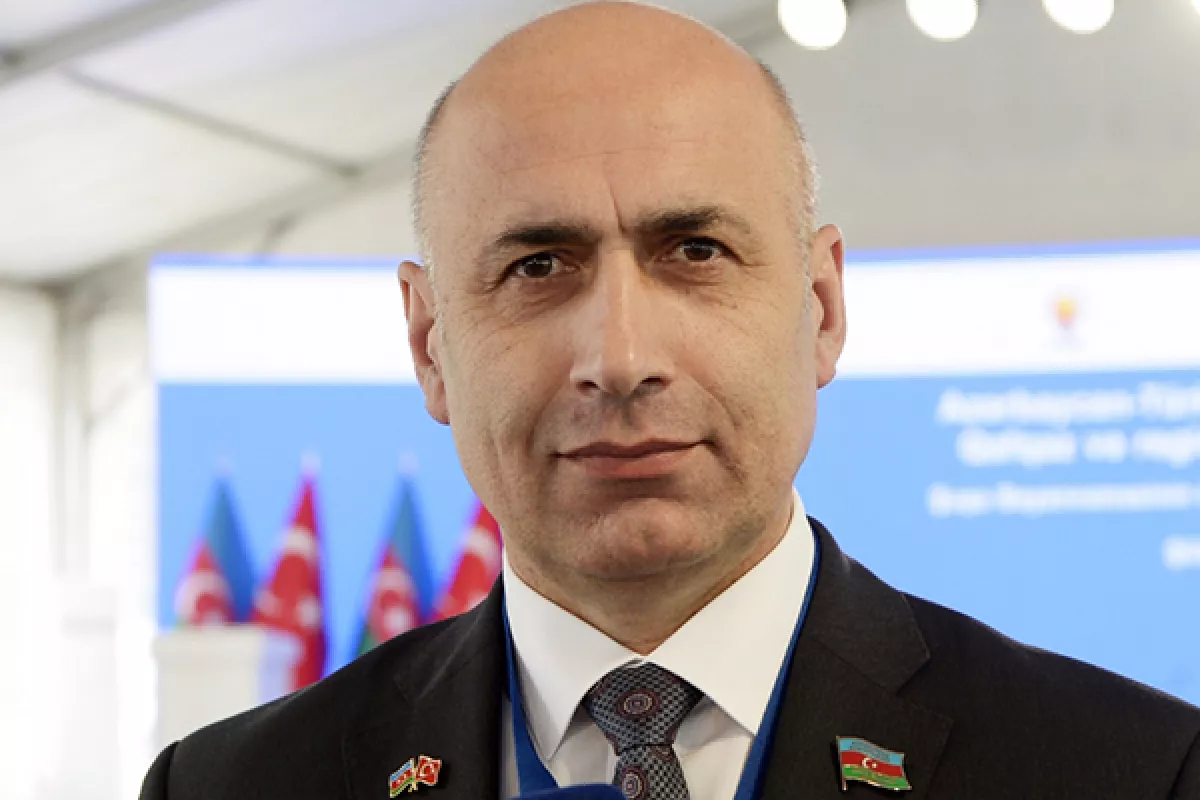What is happening between Baku and Moscow? Ban on an MP, cyberattack, and downed plane
"The glorious traditions of friendship and mutual assistance strengthened in those difficult years will continue to be a reliable basis for the development of friendly and allied relations between Russia and Azerbaijan in the future," reads the congratulatory letter from Russian President Vladimir Putin to Azerbaijani President Ilham Aliyev on the occasion of the 80th anniversary of Victory.
"If we talk about Russian-Azerbaijani relations, it seems to me that everything is developing very well now. May God grant that it will continue to be the case," said Patriarch Kirill of Moscow and all Rus', who is currently on a visit to Baku. He described Azerbaijan as a blessed country and emphasized that he always "flies here as if on wings." As we can see, the tone of these statements is very warm.
However, if we look at the situation from a practical standpoint, a different picture emerges. Within the Russian system, it is clear that there are forces who benefit from undermining bilateral relations, creating tension where there should be none. The recent actions taken, to put it mildly, can hardly be called friendly.
For instance, the Azerbaijani delegation was heading to Astrakhan at the invitation of the Russian Federation to participate in events marking the birthday of Heydar Aliyev. The event itself, as the hosting side surely understood, is of great importance to Azerbaijan.
Nevertheless, a member of the Azerbaijani Milli Majlis (parliament), Azer Badamov, was detained at a Moscow airport and prevented from boarding the flight — he was informed of a ban on entering Russia without any explanation. Such decisions, especially in the case of official events involving parliamentary delegations, are usually communicated in advance. The lists of participants for such visits are typically agreed upon beforehand. In this case, however, we are dealing with a demonstrative form of disrespect — both towards the deputy and towards the institution of intergovernmental parliamentary dialogue.

Never before has a member of the Russian State Duma arriving in Baku been turned away and sent back. All Russian parliamentarians included in the "black list" of the Azerbaijani Ministry of Foreign Affairs — including, for example, the deputy chairman of the Duma's Committee on CIS Affairs, Konstantin Zatulin — are well aware of this and simply do not attempt to come to Baku. By the way, Zatulin is a "unique" figure in his own right: he is banned from entering not only Azerbaijan, but also Armenia, Georgia, Moldova, Ukraine, and Kazakhstan. How a person with such an impressive diplomatic blacklist continues to hold the position of deputy chairman of the Committee on CIS Affairs is, perhaps, a question more suited for the intellectual club "What? Where? When?"
But let's return to the ban on entry for Milli Majlis deputy Azer Badamov. It is assumed that this step from the Russian side was a reaction to his criticism of State Duma deputy Nikolai Valuev, who made offensive remarks about the Azerbaijani people. The reason, let us recall, was the closure of the Rossotrudnichestvo office in Baku — the so-called "Russian House," after which Valuev publicly referred to the Azerbaijani diaspora in Russia as a "shobla-vobla" and called for "driving them out through the sieve of the law."
In Azerbaijan, no member of the Milli Majlis has ever referred to the Russian diaspora as a "shobla-vobla" or called for "driving them out through the sieve of the law." On the contrary, they are respected and valued. Moreover, the chairman of the Russian community in the country, Mikhail Zabelin, is represented in the Azerbaijani parliament. As Azerbaijani President Ilham Aliyev rightly emphasized during his meeting with Patriarch Kirill of Moscow and all Rus': "Representatives of the Russian community, actively participates in the development of our country, contributing to its sovereignty and territorial integrity, and together with all other representatives of the numerous peoples living in Azerbaijan, makes a great contribution to the overall development of our country."

Nikolai Valuev's statement was unacceptable both in form and content. In turn, Azer Badamov's response to this rhetoric was principled, clear, and fully in line with his status as a deputy. Therefore, the actions of the Russian side towards the Azerbaijani parliamentarian not only appear unfounded but also provocative. They contradict the official statements made by Russia regarding the nature of bilateral relations and undermine the very logic of allied cooperation between the two countries.
At this point, it is worth recalling what was said this week by Ramid Namazov, Chairman of the Milli Majlis Commission on Countering Foreign Interference and Hybrid Threats.
He directly stated that the cyberattack on several Azerbaijani media resources, including Caliber.Az, on February 20, 2025, was organized from Russian territory. According to him, the attack was carried out at a high technical level and originated from the cyber espionage group APT29 — also known as Cozy Bear, Midnight Blizzard, or The Dukes — which is closely linked to Russian structures.
As Namazov noted, this group is engaged in operations of special importance — targeting government institutions, diplomatic missions, energy sectors, defense objects, and media. A reasonable question arises: after the incident with Badamov, should we now expect news that Ramid Namazov himself will be turned away at a Moscow airport if he ever tries to travel there? Personally, looking at what’s happening, I can no longer rule that out.
It’s also worth noting: such a demonstrative cyberattack on Azerbaijani media could hardly have taken place without the knowledge of the relevant Russian authorities. And that, at the very least, leads to fairly transparent conclusions.
It would be useful to remind ourselves of the context in which the cyberattack on Azerbaijani media resources took place. It became part of Moscow's nervous reaction to a series of events that caused clear irritation within Russian structures.
Firstly, Baku’s decision to close the Rossotrudnichestvo office — the so-called "Russian House," whose activities had long raised questions.
Secondly, the reduction of staff at Sputnik Azerbaijan as part of the principle of parity: if only one employee of the Azerbaijani news agency remains in Russia, then, quite reasonably, the same mirrored approach should apply in Baku.
And thirdly, publications in Azerbaijani media, which, based on specific data and evidence, presented a well-argued position about Russia’s involvement in the Azerbaijan Airlines plane crash that claimed the lives of 38 people.

Following this, versions began circulating in Russian media, ranging from a bird strike to an alleged oxygen tank explosion. Sometimes, there were even blatantly offensive remarks directed at the leadership of Azerbaijan. However, the key fact remains: there is irrefutable evidence that the civilian aircraft was shot down by the "Pantsir" air defense system, which had been put on combat alert in the wake of a drone attack on Grozny. It was this factual position that led to the cyberattack — demonstrative, technically sophisticated, and clearly unfriendly.
Certainly, Azerbaijan has the right to expect clear explanations. And not only in connection with the incident involving Azer Badamov but also on other fundamental issues — from the crash that claimed dozens of lives to the cyberattacks on leading Azerbaijani media resources. The silence of the Russian side — especially in light of new actions that can only be described as provocative — casts doubt on the sincerity of the statements about the commitment to the spirit of strategic alliance with Azerbaijan coming from Moscow.








